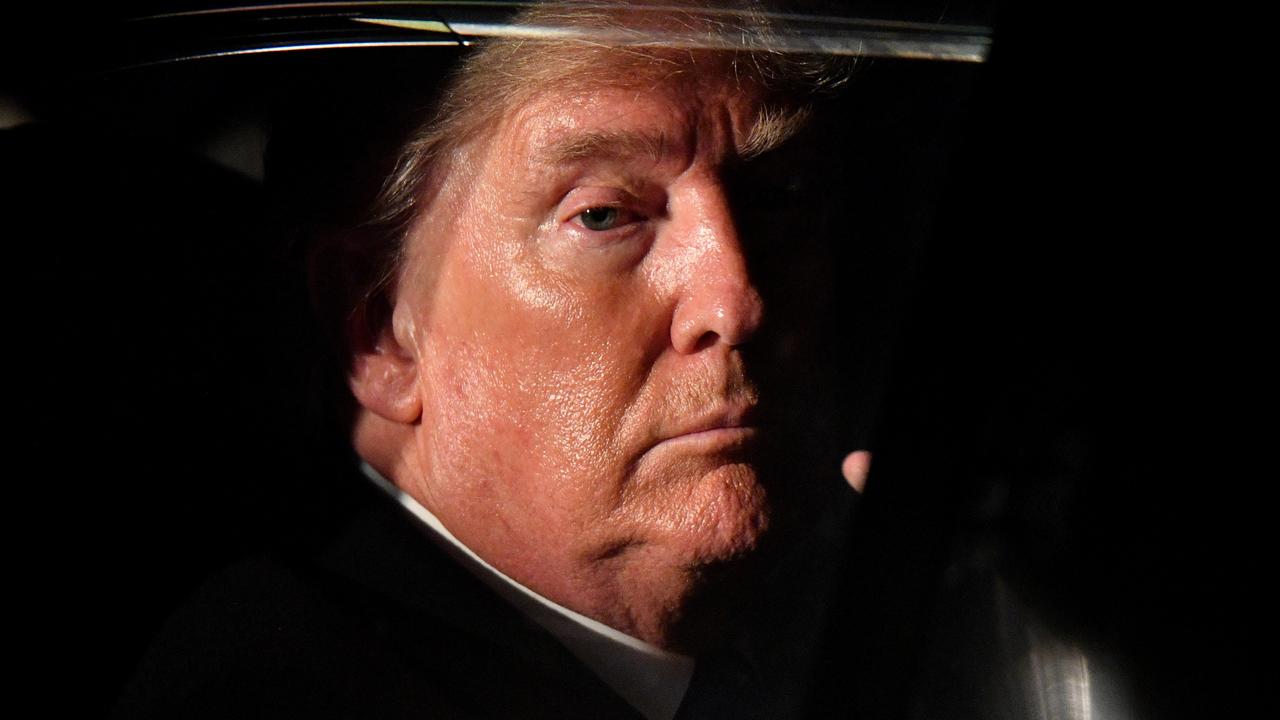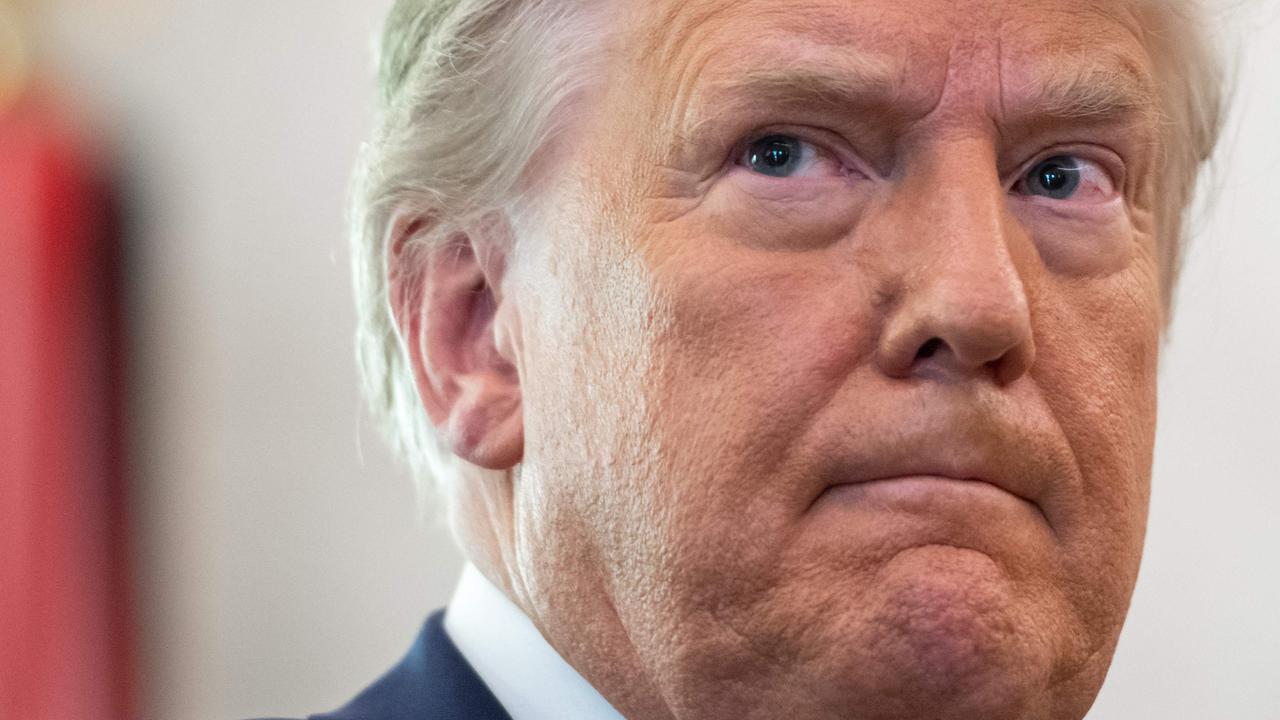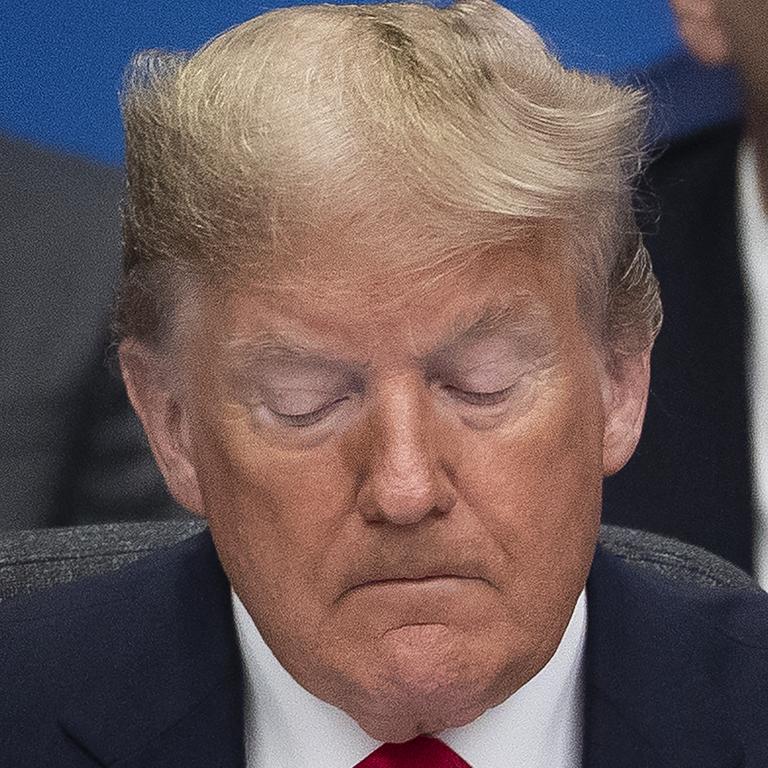Legal actions that could still destroy Donald Trump
The title of president has been stripped away and Donald Trump is about to face the biggest legal battles of his life. There’s one thing that could finish him off.
Donald Trump’s troubles are only just beginning. The title that put him above the law has been stripped away. Now a stampeding horde of lawyers is coming after him.
He’s is the first US president to be impeached twice. The “high crimes and misdemeanours” offence is wide-ranging, embracing everything from accepting bribes to treason.
But it is judged in a political court. Not a legal one.
Here, party loyalty and dogma means more than the “beyond reasonable doubt” of actual evidence.
And while 10 Republican senators have indicated their intention to convict the public face of their party, that’s a tiny percentage of their total number in Capitol Hill.
It’s Trump’s many alleged “misdemeanours”, however, that will most likely get him.
“The impeachment is the opening salvo of investigations and allegations of wrongdoing that will define his legacy,” argues public policy Professor Thomas Klassen.
RELATED: Biden conspiracy that never came true

Mr Trump will fight these before district magistrates, state judges and – possibly – the Supreme Court. And while US judges are themselves political appointees, they have reputations and standards to uphold.
Criminal cases must be fought against state and federal prosecutors. A loss means jail.
The civil cases are tried before magistrates and judges. A loss means a payout.
Donald Trump’s net worth might be estimated at $US2.5 billion ($A3.23 million) but that vast fortune might not be enough to protect him from the legal actions that could be unleashed on him.
LOCK HIM UP?
As president, Mr Trump was almost immune from legal prosecution for breaches of federal law. Temporarily.
It’s a privilege granted by the US Justice Department to bypass political powerplays aimed at crippling an administration with compulsory court appearances.
Only Congress can punish a wayward president through the constitutional power of impeachment.
But, once evicted from the White House, the gloves are off.
Potentially.
Mr Trump can now be investigated for wrongdoing while president. Older investigations, such as evading federal taxes, can resume.
And Mr Trump didn’t issue himself and his children with a constitutionally dubious presidential pardon before closing the Oval Office door behind him.
RELATED: Melania abandons Trump on tarmac

But, it’s complicated.
Trump supporters will perceive any such legal action under the Biden administration as being politically motivated. And those supporters have already demonstrated their destructive potential.
“Before Trump incited the storming of the Capitol on January 6, it seemed improbable that Biden’s administration would consider seeking criminal charges,” Professor Klassen writes. “It remains unlikely that Biden will authorise the unprecedented step of the Federal Government taking a former president to court on criminal charges.”
That, he adds, could bode ill for the future.
“Failing to charge Trump if there’s sufficient evidence uncovered to warrant charges creates a situation in which presidents solidify their immunity. As Biden himself noted in August: ‘I don’t think anyone’s above the law’.”
STATE OF PLAY
US state law is a different story. Federal institutions – and the US presidency – aren’t supposed to have any say. Such “distance” could give the Biden administration a “degree of cover”, Professor Klasen says.
Mr Trump could face state-based criminal charges for inciting the January 6 insurrection attempt on Capitol Hill. These criminal cases would run parallel to the Senate impeachment trial. And courts would judge him – not his Senate political peers.
RELATED: Mass psychosis may be driving Trump fans

But Michigan State University law professor Brian Kalt says the legal process could affect the political process: “If Trump is facing prison, you could imagine the senators saying, ‘Well let’s see how this plays out first.’”
That, he says, could result in years-long delays as the criminal prosecution process plays out.
But that’s just one state-based challenge facing Mr Trump.
He may also have to answer for his phone call begging Georgia’s Secretary of State Brad Raffensberger to “find” enough votes to give him victory.
And New York has been busily chasing “extensive and protracted criminal conduct at the Trump Organisation” for years. It has launched a raft of criminal – and civil – investigations. These include fraud and falsification of records.
But, it’s complicated.
“Regardless of the constitutional independence of state governments, the decision to charge Trump in New York could be made from the Oval Office given the political ramifications and the precedent-setting nature of charging a former president,” Professor Klassen states.
MISDEMEANOURS
There is one legal arena party politics can’t reach: civil lawsuits.
Mr Trump is facing a litany of complaints from past associates.
Sexual assault. Defamation. Unpaid bills.
These people are aggrieved. These people are angry. These people want Mr Trump’s blood.
Presidents aren’t immune from civil cases launched before they take office. But Mr Trump’s four-year term has served to considerably slow proceedings.
“These are the weakest of the legal cases Trump will face given he’s merely accused of lying rather than having engaged in unlawful behaviour – despite 26 women accusing him of sexually assaulting them,” says Klassen.

Despite being weak, these charges are the most likely to be pursued to the bitter end.
Mr Biden’s precarious political balancing act isn’t likely to concern the litigants.
And those litigants are demanding closure.
“At the moment, it’s probable that these cases against Trump will result in a monetary payment or an apology,” Klassen concludes.
TRUMP ON TRIAL
It’s not clear if Mr Trump will ever face legal consequences for his Capitol Hill insurrection role. But impeachment will ensure he remains in the headlines for months to come.
It will take a two-thirds majority to convict him. The Democrat Party holds just 50 per cent of the seats. That means 17 Republicans must break ranks.
But half is likely enough to ban Mr Trump from holding federal office ever again.
Mr Biden, however, has already displayed little appetite for the process. He’s already asked Republican Senate Leader Mitch McConnell to split hearings to allow his COVID-19 relief efforts’ fast-tracking.
Beyond impeachment, federal legal action remains risky.
“Regardless of rhetoric about justice being blind,” Professor Klassen writes, “any decision to charge Trump with a federal criminal offence is at least partly political, and will rest with Biden. At the moment, it continues to be improbable that Trump will face federal charges.”
State-based criminal charges remain an unknown.
But Mr Trump’s long list of aggrieved associates, employees and citizens aren’t likely to go quietly into the night. And even out-of-court settlements are likely to cause mounting damage to the Trump family brand name.
“Some might hope Trump’s second impeachment and the legal proceedings that could be about to begin against him will bring a measure of censure and closure to his term in office and redress some of his excesses in the White House,” Professor Klassen concludes.
“This isn’t likely to happen as the political cost to prosecute an ex-president is extraordinarily high and also runs the risk of making him a martyr to his base.”
Jamie Seidel is a freelance writer | @JamieSeidel




